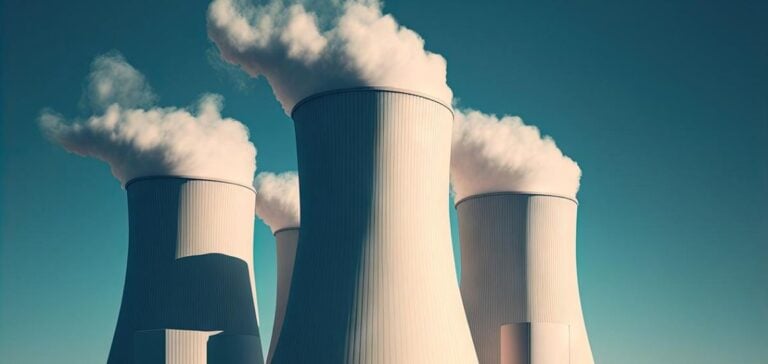The European Commission has announced the opening of an investigation into the financial support provided by Poland for its first nuclear power plant project, planned in Lubiatowo-Kopalino in the northern region of the country. This project aims to be operational by 2030, with an estimated cost of €45 billion for a capacity of 3,750 megawatts (MW).
Poland, still heavily reliant on coal to produce its electricity, views nuclear energy as a strategic solution to diversify its energy mix and reduce greenhouse gas emissions. The European Commission acknowledges that this project could strengthen electricity supply security and accelerate the energy transition. However, it wants to examine whether the state aid complies with European rules to avoid any distortion of competition.
The Aid Mechanisms in Question
Poland is planning three forms of financial support for the state-owned company Polskie Elektrownie Jadrowe (PEJ), which is managing the project:
– A capital injection of €14 billion.
– Public guarantees covering 100% of PEJ’s debts.
– A “contract for difference,” guaranteeing a stable income for electricity produced during the 60 years of expected operation.
These measures, while deemed essential by Warsaw to launch this ambitious project, raise concerns in Brussels, particularly regarding the risk of excessive aid.
Regulatory and Strategic Challenges
According to European Commission Vice President Teresa Ribera, it is crucial to ensure that these public subsidies do not disadvantage other market players. While the Treaty on the Functioning of the European Union (TFEU) guarantees member states the freedom to choose their energy mix, national measures must still comply with community competition rules.
Ultimately, Poland aims to construct three nuclear sites, each equipped with three reactors, for a total capacity of 15 gigawatts (GW). These installations could account for up to 30% of Poland’s energy mix.
Decarbonization and Energy Sovereignty
This project comes as Poland seeks to reduce its dependence on coal, which still constitutes a majority of its electricity production. Nuclear energy, seen as a lever for decarbonization, also plays a key role in national and regional energy security. However, the European evaluation will need to ensure that public support strikes a balance between fostering development and maintaining fair competition.
The Commission’s decision on the compatibility of Poland’s subsidies with European rules is expected to have significant implications not only for Poland but also for other member states considering new nuclear projects.





















